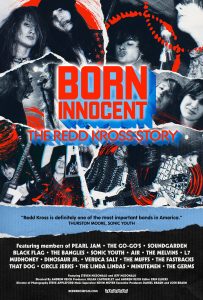The 50 best albums of 2023, No 9 – Amaarae: Fountain Baby | Music
When the Ghanaian-American singer, songwriter and producer Amaarae emerged internationally from west Africa’s alté scene in 2020, she told Pitchfork: “I want to be the quintessential African princess of pop.” This year, ahead of the release of her second record, Fountain Baby, she had upgraded her ambitions, stating: “Fountain Baby is a pop album above all else. It should not be pigeonholed solely as an ‘Afrobeats’ project.” Defying limited cultural and social imaginations, confidently stating and fulfilling her desires, coining instant, snappy, addictively slangy hits: these are the qualities that actually define the 29-year-old pop star, whose voracious ambition and ability to execute it puts her in conversation with the likes of Björk and Rosalía.
As promised, Fountain Baby is a lavish and playful album with a borderless vision shaped by Amaarae’s upbringing between Accra and Atlanta: yes, there are the sleek percussive elements of Afrobeats, along with the euphoric boundlessness of alté, but there are just as many nods to, say, the cascading vocal delivery of southern US trap, or breathy Janet Jackson-esque trills. Revelling in excess and ambiguity, densely saturated and constantly shapeshifting, Amaarae’s experimentation also takes in punk, R&B, flamenco, melodic rap, g-funk, soft rock and more, all topped off with her sugar-sweet voice.
The clearest comparison is with Timbaland and the Neptunes’ work at the turn of the 2000s, with Amaarae and her co-producers putting global pop musics through a sumptuous sheen until they gleam like opulent jewellery. Big Steppa combines plush guitar, gliding strings and rich punches of high life-adjacent brass, while the Neptunes themselves are sampled on the smirking nursery rhyme-like Counterfeit. On the maximalist Wasted Eyes, its percussion wrought from gunshots, Amaarae asked a kora player and Japanese vocalist Crystal Kay to reinterpret Japanese folk singer Umeko Ando’s song Battaki so it fit with Amaarae’s message of thirsting for someone she knows is bad for her.
Desire in its many forms runs rampant through Fountain Baby. On the frenzied Co-Star she uses zodiac signs to litigate hook-ups (“Me and her, it felt like threesomes / Must be Gemini”), while elsewhere she’s listing off material dreams of diamonds and Dior. The album’s title is a nod to women’s genitalia and the record is full of unabashedly erotic lyrics about wetness, forbidden touches and wanting to fuck puddles, staking Amaarae’s gleeful claim to power, wealth and sex. Sometimes, pleasure is just pleasure: “I like my coffee with some head in the morning,” she asserts in a knowing flutter on the sumptuous Disguise, with a chorus so thick with yearning it could be a Bollywood love song. But elsewhere, she’s sharply aware of how those three wants intertwine, and how people might use her for any one of them: “It’s ’cause my money’s just too long / The thought of me spendin’, gives you goose bumps,” she offers in weary, whispery falsetto on gently buoyant Reckless & Sweet.
Despite the potential climbers, Amaarae remains unbridled in her pursuit of gratification. On Come Home to God, she even places herself as the almighty – “Shawty say she love me like she love the Lord / When I’m in that pussy, I’m above the law.” Sex, Violence, Suicide crescendos from a delicate Auto-Tuned ballad ruminating on a relationship that’s not working (“What’s wrong with us? / Is that I love you?”) into snarling, shouty punk aided by UK rock trio Dream Wife. By the second half, her roaring ego isn’t wasting time feeling bad about herself: “Don’t care ’bout what I’m asking you / Just fucking tell me, ‘Yes’ / Tell me I’m the one / Tell me I’m the best.” Her ego remains unbridled, too – but the abundance of Fountain Baby is an act of generosity, strapping in the listener to accompany Amaarae on her gloriously confident romp in pursuit of pleasure.





